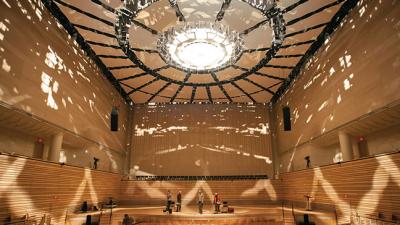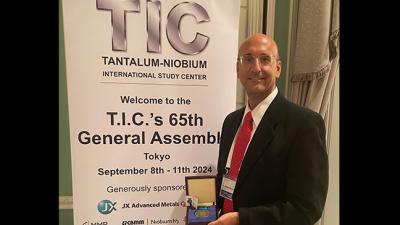Can a Synthetic Voice Be Taught to Sing Opera?
RPI students design special housing units to combat crisis
RPI Appoints Dena Beard Executive Director of Curtis. R. Priem Experimental Media and Performing Arts Center
Rensselaer Polytechnic Institute (RPI) has named Dena Beard, M.A., the new Executive Director of the Curtis R. Priem Experimental Media and Performing Arts Center (EMPAC).
Experience I Dream in Concert at RPI: A Powerful Tribute to the Civil Rights Movement
The Musical Dramatic Arts Foundation is proud to present a concert version of the groundbreaking musical I Dream in Concert in partnership with Rensselaer Polytechnic Institute (RPI). The special performance will take place on November 1, 2024, at RPI, Troy, NY, and aims to reach both the broader community and RPI students, faculty and staff.
In New Opera, Art and Technology Harmonize to Raise Up Voices
Opera is synonymous with the power of the human voice. The Other Side of Silence, a new opera produced by Opera Saratoga presented as a workshop performance at Rensselaer Polytechnic Institute on October 16 at 7 p.m., merges creativity and technology to include new voices and audiences in the artform.
RPI Economics Professor Participates in Big Tech-AI Symposium
Vivek Ghosal, Ph.D., Virginia and Lloyd W. Rittenhouse Professor and Department Head of Economics at Rensselaer Polytechnic Institute, was an invited participant in ProMarket’s Big Tech-AI Investment Symposium.
RPI Concert Highlights Partnership Between Major Experimental Composers
Faculty, students, and alumni from the Arts Department at Rensselaer Polytechnic Institute will present Time Regained, a concert showcasing the partnership of Pauline Oliveros and Terry Riley through the lens of time-delay techniques, on Wednesday, November 6, at 4 p.m. in the Concert Hall of the Curtis R. Priem Experimental Media and Performing Arts Center (EMPAC).
Rensselaer Researcher Honored for Work in Tantalum
Rensselaer Polytechnic Institute’s Peter J. Bonitatibus Jr., Ph.D., associate professor of chemistry and chemical biology, has been honored with the Anders Gustaf Ekeberg Tantalum Prize for excellence in tantalum research and innovation. Bonitatibus was presented the award by the Tantalum-Niobium International Study Center (T.I.C.) based out of Belgium at T.I.C.'s 65th General Assembly held in Tokyo, Japan.





